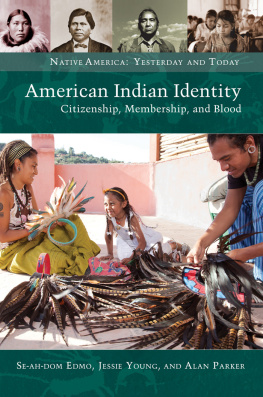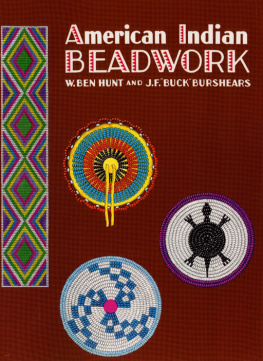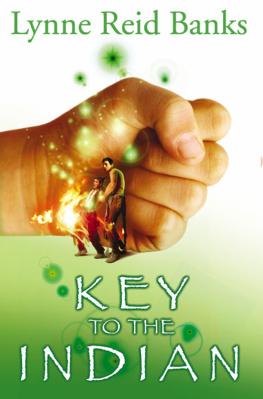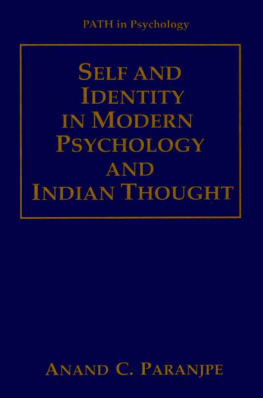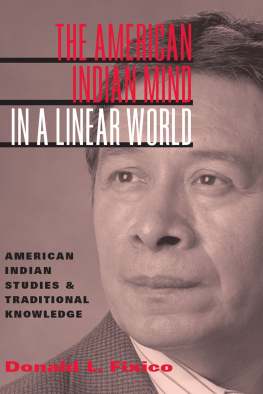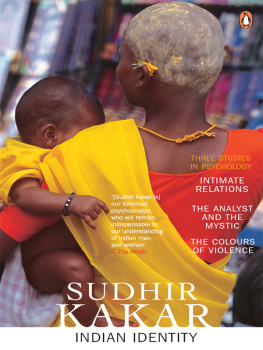Recent Titles in Native America: Yesterday and Today
Bruce E. Johansen, Series Editor
George Washingtons War on Native America
Barbara Alice Mann
The Native Peoples of North America: A History
Two Volumes
Bruce E. Johansen
Daughters of Mother Earth: The Wisdom of Native American Women
Barbara Alice Mann, editor
Iroquois on Fire: A Voice from the Mohawk Nation
Douglas M. George-Kanentiio
Native America, Discovered and Conquered: Thomas Jefferson,
Lewis & Clark, and Manifest Destiny
Robert J. Miller
The Praeger Handbook on Contemporary Issues in Native America
Volume 1: Linguistic, Ethnic, and Economic Revival
Volume 2: Legal, Cultural, and Environmental Revival
Bruce E. Johansen
The Tainted Gift: The Disease Method of Frontier Expansion
Barbara Alice Mann
Frontier Newspapers and the Coverage of the Plains Indian Wars
Hugh J. Reilly
Lethal Encounters: Englishmen and Indians in Colonial Virginia
Alfred A. Cave
Reservation Capitalism: Economic Development in Indian Country
Robert J. Miller
Land and Spirit in Native America
Joy Porter
Resource Exploitation in Native North America: A Plague upon the Peoples
Bruce E. Johansen
American Indian Identity
Citizenship, Membership,
and Blood

Se-ah-dom Edmo, Jessie
Young, and Alan Parker
Foreword by Robert J. Miller
N ATIVE A MERICA: Y ESTERDAY A ND T ODAY
Bruce E. Johansen, Series Editor

Copyright 2016 by Se-ah-dom Edmo, Jessie Young, and Alan Parker
All rights reserved. No part of this publication may be reproduced, stored in a retrieval system, or transmitted, in any form or by any means, electronic, mechanical, photocopying, recording, or otherwise, except for the inclusion of brief quotations in a review, without prior permission in writing from the publisher.
Library of Congress Cataloging-in-Publication Data
Names: Edmo, Se-ah-dom, author.
Title: American Indian identity : citizenship, membership, and blood / Se-ah-dom Edmo, Jessie Young, and Alan Parker ; foreword by Robert J. Miller.
Description: Santa Barbara, California : Praeger, an imprint of ABC-CLIO, 2016. | Series: Native America: yesterday and today | Includes bibliographical references and index.
Identifiers: LCCN 2015050855 (print) | LCCN 2016000811 (ebook) | ISBN 9781440831461 (hardback) | ISBN 9781440831478 (ebook)
Subjects: LCSH: Indians of North AmericaEthnic identity. | Citizenship. | BISAC: SOCIAL SCIENCE / Ethnic Studies / Native American Studies.
Classification: LCC E98.E85 E26 2016 (print) | LCC E98.E85 (ebook) | DDC 970.004/97dc23
LC record available at http://lccn.loc.gov/2015050855
ISBN: 9781440831461
EISBN: 9781440831478
20 19 18 17 161 2 3 4 5
This book is also available on the World Wide Web as an eBook.
Visit www.abc-clio.com for details.
Praeger
An Imprint of ABC-CLIO, LLC
ABC-CLIO, LLC
130 Cremona Drive, P.O. Box 1911
Santa Barbara, California 93116-1911
This book is printed on acid-free paper 
Manufactured in the United States of America
Contents

Alan Parker
Jessie Young and Alan Parker
Alan Parker
Se-ah-dom Edmo
Se-ah-dom Edmo
Se-ah-dom Edmo
Se-ah-dom Edmo
Jessie Young
Jessie Young
Alan Parker
Alan Parker
Series Foreword

ADDING TO AN INTERNATIONAL CONVERSATION ON INDIGENOUS IDENTITY
T his anthology brings together the talents of several scholars to define Native American identity in many areas, helping to shape a common conversation regarding how to shape these ideas so that they reflect enduring, distinctive, native traditions. It illustrates how fundamentally thinking has changed vis--vis Native American identity in a few decades. A great deal of the native self-determination movement involves assertion of sovereigntythat is, identity vis--vis a dominant culture. At some level, it also involves appreciation of the ways in which Native American examples shape dominant culture.
At 65 (66 by the time this book is published) I have watched part of this change. I am writing this foreword on my way to a world conference at Acharya Nagarjuna University, Guntur, India (250 miles north of Chennai), on the subject of Native American contributions to democracy, feminism, gender fluidity, and environmentalism at a global seminar Celebrating the Ancient/Contemporary Wisdom of Fourth World. When I was 25, indigenous friends suggested the idea that the Native American example, most notably that of the Haudenosaunee (Iroquois), had played a role in the gestation of modern democracy. I took up the idea as a PhD dissertation, initially against the advice of my supervising professors, at a time when much of American history was steeped in the paradigm of conquest, as westward movement.
In 1975, I took a cue from the scholar and legal activist Felix Cohen who, in 1952, had asserted that Native Americans had contributed importantly to the majority culture of the United States (Cohen, 1952, 177191). During ensuing decades, an increasing number of scholars have come to support Cohens interpretation, and to expand upon it. Cohen couched his argument in a European precedent: Rome may have conquered Greece, he wrote, but the Romans also absorbed and were transformed by Greek culture, in addition to many well-known foods and medicines.
In 1975, I had no inkling that, four decades hence, I would be exploring Native American contributions to democracy, feminism, gender fluidity, and environmentalism in India, nor that these ideas would be written up in newspapers with names like The Hindu, nor that my paper would be published in an academic journal there that is devoted to indigenous identity issues worldwide.
I had no idea in 1975 that the activism of the American Indian Movement (AIM) with which I was then very familiar would develop into a self-determination movement that would redefine Native American identity to support retention of language, various forms of economic support, and all other forms of culture. I did not know I would be editing a series of books that would find these themes within its ambit, nor that these ideas would be explored in such works as The Edinburgh Companion to the History of Democracy, with a worldwide team of editors and writers, published in 2012 by the Edinburgh (Scotland) University Press.
At the root of this intercultural conversation is retention and enhancement of indigenous identity, on themes explored in this book. All of this works authors are Native American, who embrace their common identity as engaged citizens within their own tribal nations. Questions of American Indian identity cross many academic fields. The framework is usually legal, but reaches also into history, philosophy, education, political science, anthropology, psychology, and civil rights.

